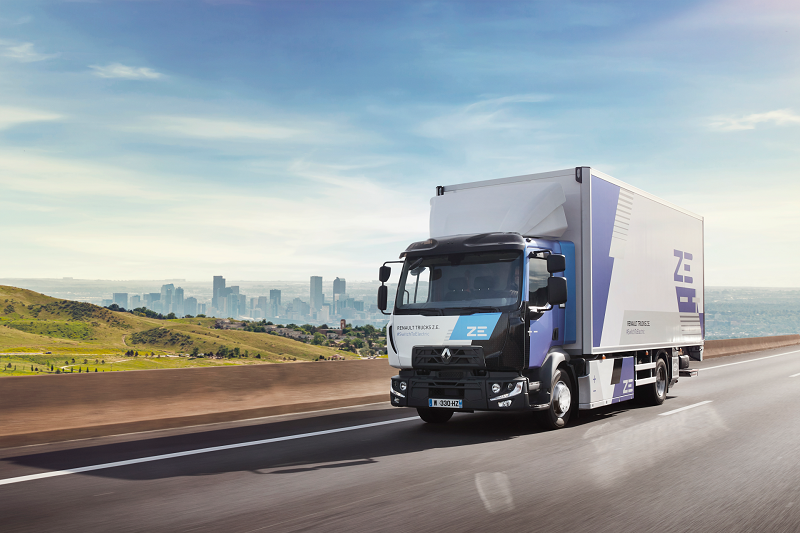French commercial truck manufacturer revealed in its 2020 results that despite the pandemic the firm maintained its market share and recorded a 12% increase in orders compared to the previous year.
Over 90% of the Renault Trucks sales network remained open at the height of the pandemic. On the European market for vehicles over six tonnes, the truck manufacturer recorded a stable market share of 8.5% in 2020. Market share remained unchanged in the over 16-tonne segment at 8.8% and in the mid-range segment (6-16 tonnes), it rose by 0.3 points to 6.6%.
Internationally, Renault Trucks recorded a 16% increase in its invoiced sales. 2020 was marked by strong recovery in Algeria, a historic market for Renault Trucks, with 1,100 trucks invoiced, up 80% on 2019.
Due to its assembly plant in Meftah, the French manufacturer has consolidated its leading position in Algeria with a 47.8% share of the over-16 tonne market for European manufacturers.
Renault Trucks has also been consistently promoting its Used Trucks unit, which has seen an uptake during the pandemic. The manufacturer recorded a record volume of invoicing with 10,308 used vehicles invoiced, an increase of 9% on 2019.
It has significantly increased its performance in terms of used truck services, with service penetration up 4 points in 2019 to 28%. The number of used trucks sold with a Selection warranty contract also rose 25% in 2020.
Renault Trucks is also adopting an entirely innovative approach to the used vehicle market. This strategy is new in the market and is based on upcycling and recycling.
The best illustration of this is its Used Trucks Factory, a specialised workshop for the transformation of used trucks integrated into the Bourg-en-Bresse manufacturing site.
The conversions carried out there are the subject of specific R&D studies and, in terms of the industrial manufacturing process and quality control, meet the same high standards as those applied to the manufacture of new vehicles. 500 additional vehicles were manufactured at the Used Trucks Factory in 2020 and new models were launched this year, such as the Renault Trucks T X-64, a vehicle dedicated to the African and Middle Eastern markets.
Renault Trucks is also pursuing the implementation of its own recycling and reuse of parts for heavy goods vehicles, with Indra Automobile Recycling. This project has been approved by the French ADEME environmental agency.
The firm has set ambitious targets for electric mobility in terms of sales volumes. It announced that by 2025, electric vehicles will represent 10% of its total vehicle sales and 35% by 2030. The goal is to provide 100% of its vehicles without fossil fuels by 2040.
The manufacturer is making huge investments to achieve this goal. In March 2020, it started series production of its second generation of electric vehicles at the Blainville-sur-Orne plant and now boasts the widest electric range on the market. Renault Trucks D Z.E., D Wide Z.E. and Master Z.E. constitute a range that extends from 3.1 to 26 tonnes, meeting the urban requirements of delivery, distribution, and waste collection.
To help its customers accelerate their energy transition, Renault Trucks has set up a new sales organisation dedicated to electric mobility.

